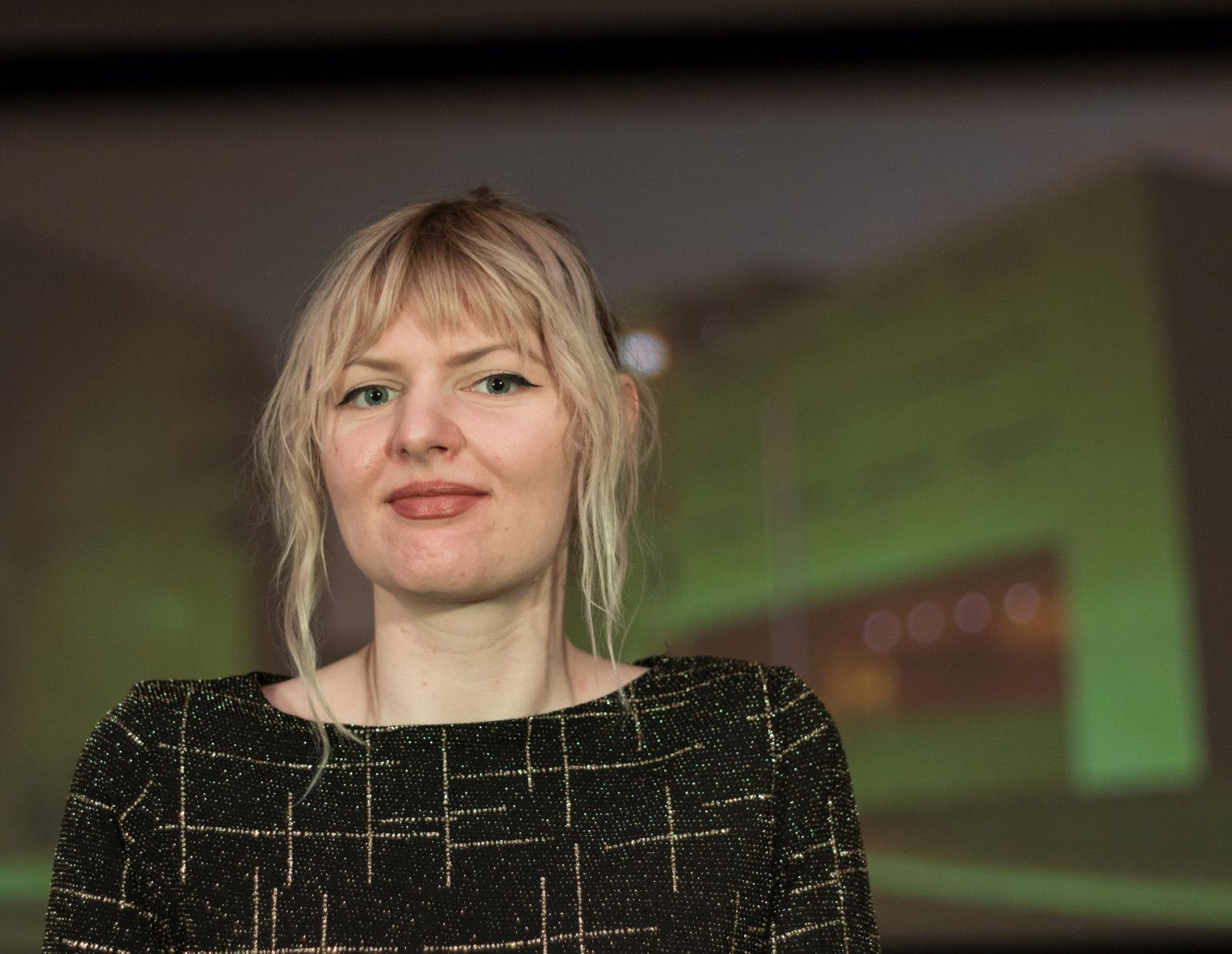FfL, day 2: A Love Letter to Robin Williams
About losing a hero and still gaining something from it. A talk about suicidal ideation by Zoe Star Rühle.
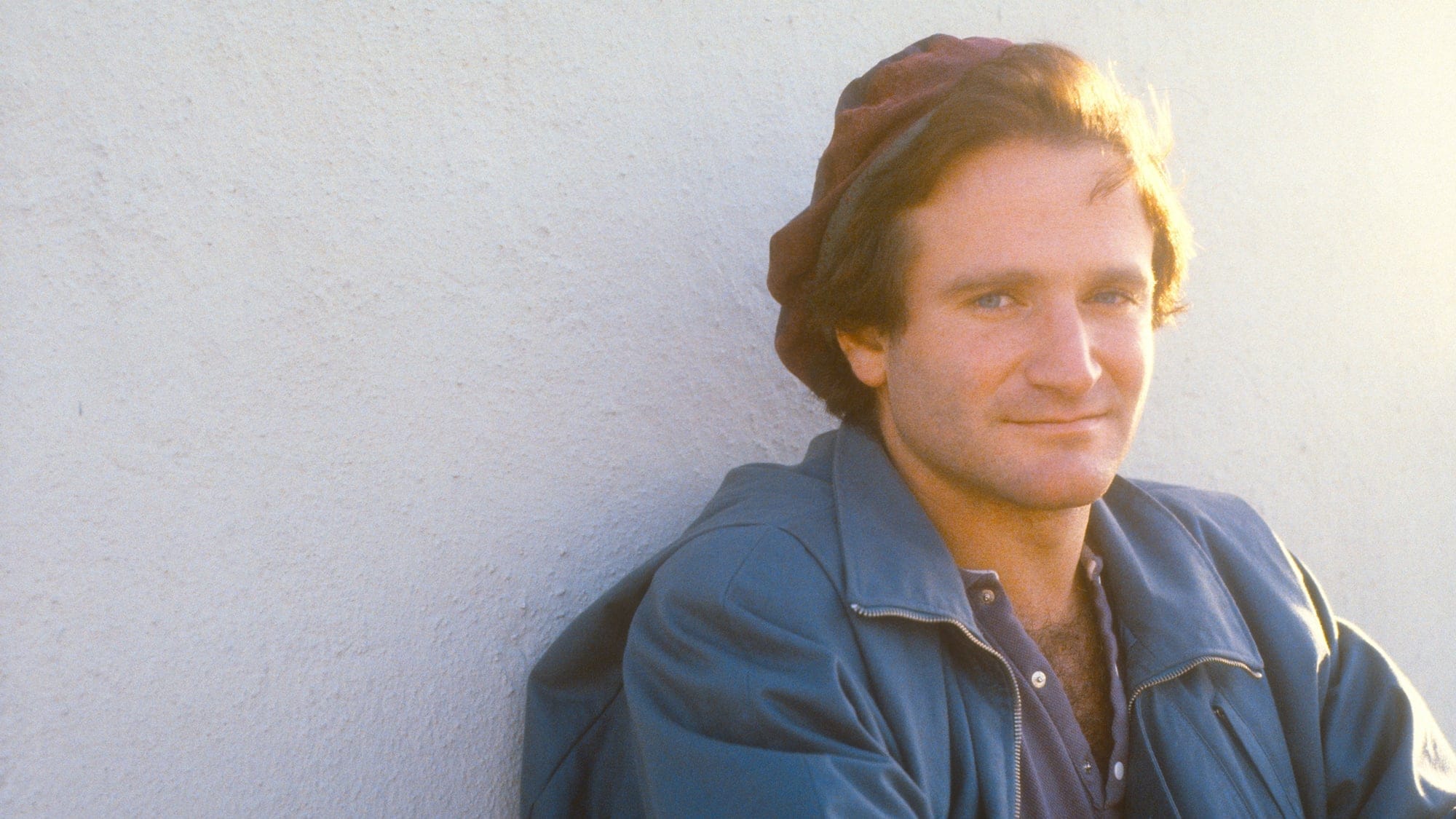
August 11th 2014 was an incredibly hot day. I was 17 years old and spent the summer holidays at my grandparent’s, in the tiny room upstairs that my dad had inhabited as a teenager, surrounded by brown-ish 70s furniture and posters of the national football team of the GDR. I still remember that I bolted awake because of the sun that had made its way through the blinds. Still dizzy, I switched on the ancient TV to catch the time on the news – and woke up instantly. On the flickering screen, a familiar face started to materialize, and a banner read something like “Hollywood star Robin Williams dead at age 63 – police suspects suicide.”
I was shocked. Not because I didn’t think Williams was capable of killing himself, I had been aware of his struggle with depression and alcoholism – I’d simply never thought that these things would catch up to him. I adored him, and in the following hours, days and weeks, it became apparent that millions of people felt the same way. Not few of them had grown up with his roles, be it extraterrestrial Mork, Mr Keating in Dead Poet’s Society, Genie in Disney’s Aladdin, Flubber, Jumanji – The list goes on. Shortly after his death, new appreciation arose for his more sombre body of work; Awakenings, Jacob the Liar, The Fisher King – this, too, could go on. Even more obscure projects like One Hour Photo and Father of the Year received some love. But primarily, loads of people, even non-cinema-goers, seemed personally bereft that Hollywood’s resident funny man had chosen to leave the stage this way.
His co-star Mara Wilson, who had acted alongside him in Mrs Doubtfire, cemented this in a blog post with a quote from the movie “We’re all his goddamn kids too!”. Somehow, Williams was everybody’s cooky uncle, whose sappy-ish films carried a feel-good-tone and invoked trust.
On that morning, William’s suicide dominated the conversation at my family’s breakfast table. Even my grandpa, may he rest in peace, usually 6’7 feet of stoic silence, muttered into his coffee “Well, you do hear a lot about all these comedians being depressed.”. I also heard this expressed a lot, which only subsided when it became clear that Williams had been suffering from a rare degenerative disease that had actually caused him to kill himself. Because he was slowly losing his mind while fully conscious. And he had barely told anyone about it, keeping all his pain to himself after four decades of making audiences laugh and touching them.
On August 11, 2014, I too was struggling with a secret I hadn't told anyone: The winter before, I had also tried to take my own life. I had many reasons - after all, I was a chubby, unpopular girl who always stood around alone in the schoolyard and who threw up in the school's restroom before PE lessons. But the fact is that depression has been with me like a fat leather coat, almost suffocating me on some days, for as long as I can remember. Mental illness is inherited in my family - it's still not often talked about. There's something quintessentially German about it: don't whine, don't complain, don't be weak.
After my failed suicide attempt, I had spent a few months in a kind of limbo where I didn't really know what to do with the situation. No one had noticed anything, so this life that I didn't want somehow went on. I had read somewhere that most people who try to kill themselves once often do it again, and with each attempt the success rate increases. I assumed it would be the same for me, that I just needed to tweak my method. I assumed I wouldn't live to be 18.
Robin William's death made me wonder for the first time whether I really wanted to settle for that. Because all the love that came from mourning him, all the good deeds you could read about in the aftermath - this man had left so much good behind, beyond his acting work.
What would people remember about me? I don't want to make fun of the sick child I used to be, but here's the truth: I was a pretty unbearable pissant. Suffering from depression rarely makes you a more pleasant person, and I was withdrawn, moody and so out of touch with the world that I spat into every outstretched hand. Today, at 27, I want to hug my former self. It was then that I realized I had to try, at least once, to create something even remotely close to Williams' positive legacy. At the end of the vacation, I revealed to my father on a long car ride that I wanted to go to therapy. It was a highly uncomfortable conversation, with many miles of silence and a noticeable helplessness on his part. Like many in his position, my father didn't know where he could put all his love for me to mend what was apparently broken.
I did go to therapy, which I found unintentionally funny because I had to recreate my family with play figurines and paint so many inner retreats until my inner retreat became any place where I didn't have to paint inner retreats. In the small town I came from, there was exactly one psychologist, and she specialized in much younger children. That's often the case with therapists - I'm sure most of them try hard, but you have to take what you can get, not what really suits your needs. Nonetheless, we made slow progress and by the time I graduated from high school, I was considered to be fully recovered and ready to tackle adult life.
I would love to sell this as a success story and end here, emphasizing that Robin Williams saved my life. That would be swell. But actually Williams saved my life twice, because when I was 20 I tried to kill myself again - because I had dropped out of my first attempt at college and assumed I couldn't survive the shame. If you are sitting here today and have just started studying, let me tell you one thing at this point: It doesn't fucking matter whether you made the right decision the first time around as far as your education is concerned. Without meaning to offend you, most decisions under the age of 25 are shit. I decided at 19 to wear black lipstick every day for a year and eat only Yogurette bars. Enjoy the crappy decisions that you can blame on your underdeveloped frontal lobes.
Be that as it may, once again Robin Williams came to my aid from the grave. I wandered around for nights on end because I couldn't sleep in my suicidal musings. Once I stayed home, I decided to pass the night by watching all of his standup specials. God knows why, but it saved me.
Many people today don't even realize how incredibly funny this man was on a stage, usually equipped only with a microphone, a tacky shirt, a water bottle and his frenetic energy. Somewhere between oral sex pantomime, pope jokes and shameless reconstructions of his worst boozy nights, I started to cry with laughter. Life has been up and down since then, but I'm still here, and many a time I've turned to a Robin Williams movie or standup for that.
Why am I telling you all this when we could just watch the wonderful movie Good Will Hunting without commentary? A desire for recognition is an easy answer, and I'm not completely free of it, but honestly - this is not pleasant. None of this is what I wanted to tell so many strangers. Above all, I realize that I'm hurting my family, my wonderful parents and my brother. Knowing something is one thing, but being told on a public level how you almost lost a loved one - I never wanted to put them through that. But from the moment it became clear that KiK would be organizing this festival, it was clear to me that there had to be someone up here who was affected. Someone who can talk about suicide not just as a sober fact, but as part of their life. And I didn't want to organize the saddest casting ever and look for someone who is willing to present his or her suffering to the masses. That's something I only ask of myself.
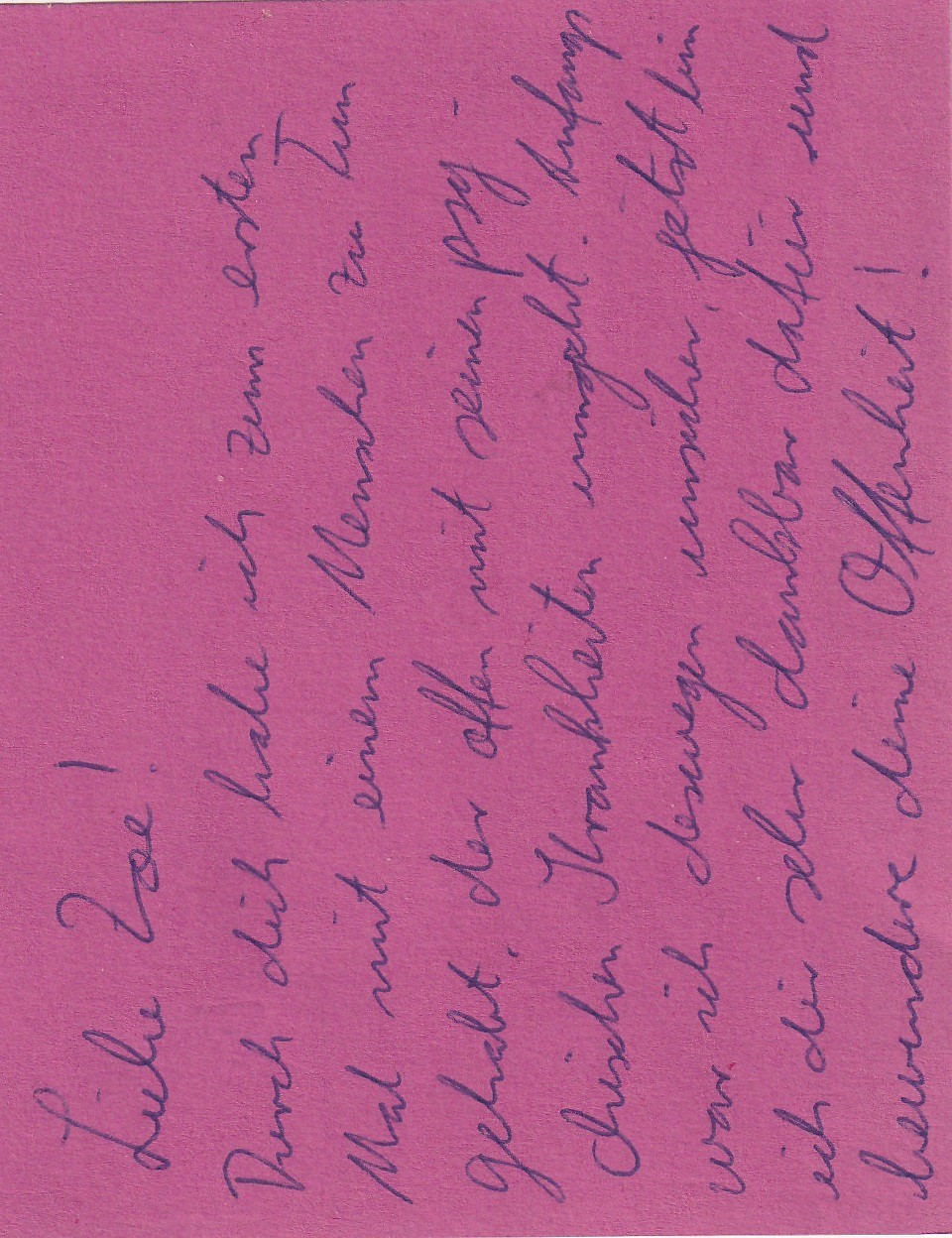
I have brought you the second reason here. This is a little note I got from a person I volunteered with at schools a few years ago. Let me read it to you:
“Dear Zoe!
Through you, I have had my first contact with someone who is open about their mental illness. At first I was unsure about it, but now I am very grateful for it and admire your openness!”
It's hard to believe, but that's not to flatter myself either. At the time, I was rather shocked that someone I was working with had these reservations. But I can understand it. We live in an age in which there's a constant stream of killing sprees and assassinations on TV all day, every day, and if it wasn't the extremists, it was the psychos. What is what is usually decided by skin color and religion. A lot has changed in recent years and you may know one or two people who are also depressed, if you are not affected yourself. But suicide is still such a taboo that very few people who have tried it will tell you in the morning at the coffee machine.
Incidentally, this is undoubtedly another aspect - no matter how open-minded we may be as a society, our working world is designed for functioning, not for mental illnesses that have no expiry date. By standing here and coming out, I can permanently ruin my career options. It doesn't bother me that much, I'm a humanities scholar. By studying philosophy, I've obviously decided against capitalist career lust - but many other people don't have this luxury. They fear for their existence, for the few everyday structures they still have.
Some of you may be here tonight because you want to find out how you can help. I have three tips for you. Number one, show solidarity with your work colleagues. Put others in their place when they make fun of Agneta from accounting, who is on sick leave again. Get involved in your trade union for humane labor laws that allow people to recover without having to hide.
Secondly, look at where you put your cross when you vote. I haven't mentioned this before, but the fact that I am bisexual was a major factor in my first suicide attempt. In hindsight, this seems slightly ridiculous, because today I am at peace with few of my characteristics as I am with this. But as a teenager in the late 2000s, experiencing the hell that those who were even suspected of homosexuality went through on a daily basis at school - back then I really thought that my sexuality would always be the first and worst thing anyone would see about me. Nobody wants a future like that, which is why it was easy to convince myself that I didn't have one. And that's how it is for an incredible number of people who seek treatment; they don't necessarily have a lack of dopamine, but an excess of discrimination, to which they understandably react with depression. And that means for you at the ballot box
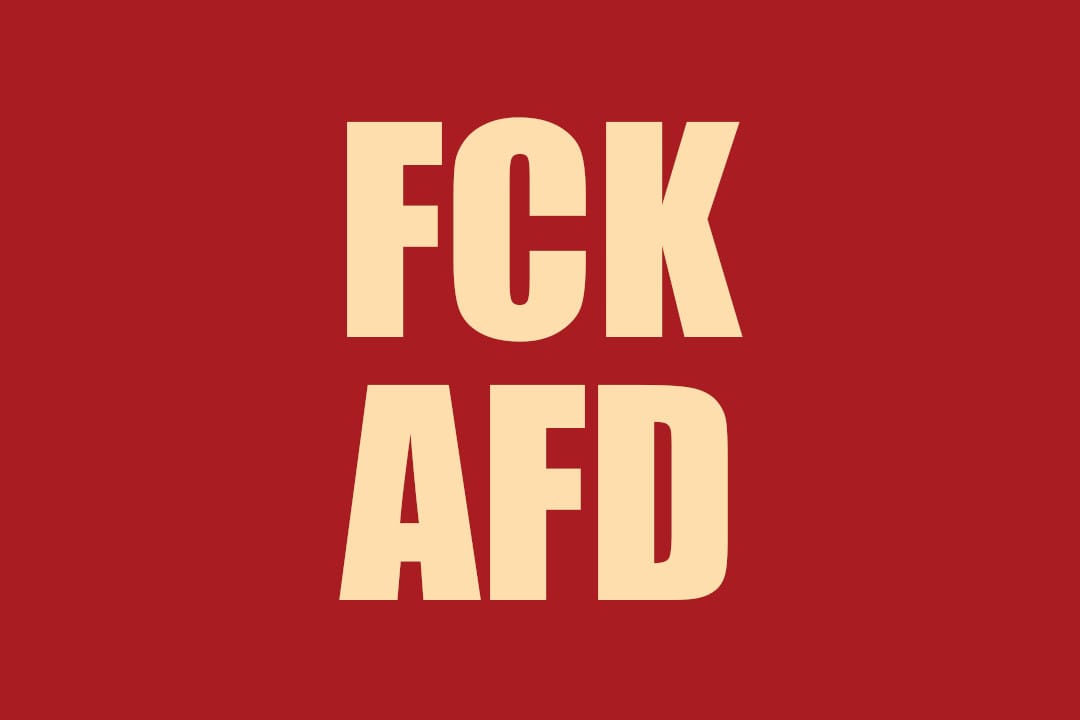
The AfD pursues an inhuman policy in which everyone who is not from here or whose parents and grandparents are not from here is placed under general suspicion, in which transphobic and queer-hostile scaremongering is shamelessly practiced, which calls for an education system that is inappropriate for the disabled and glorifies the concept of euthanasia, and which is committed to the concerns of the little man but pursues a financial policy that creates precisely these concerns - a party like this is about as compatible with mental health care as Elton John is with discreet fashion. Of course, this is primarily my personal opinion, not that of the Kino im Kasten. Just this much: we are always happy to welcome movie fans, no matter where their roots are, what they have in their pants or whom they let touch their bits and whether there's a wheelchair in there somewhere. We even accept Christopher Nolan fans here. But fascists - we don't want them in our cinema, and if you really care about depressives and their rights, you don't want them in your state or federal parliament either.
Thirdly - sometimes only cold, hard cash really helps.
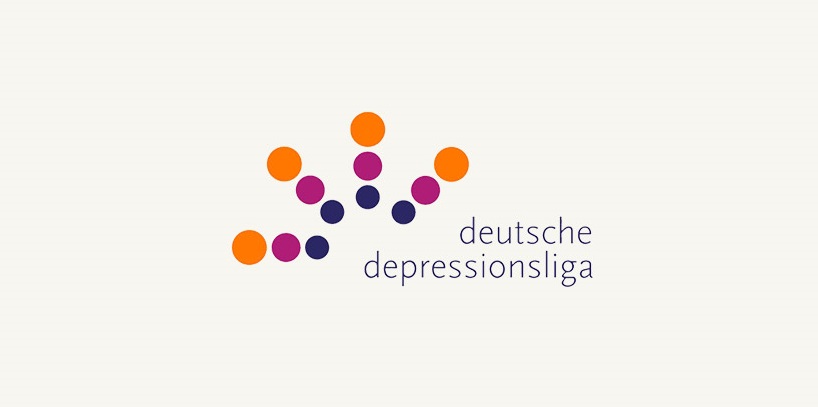
Many of you will have seen the stand of our friends from the Deutsche Depressionsliga outside at the bar, and some of you may have already exchanged a few words with Mr. Vorthmann. This association runs projects and education that are vital for us depressives, but they are not cheap either. That is why I appeal to you: Invest the money you have saved on movie tickets there. Make sure that Mr. Vorthmann can hardly carry the donation box away from here because it's so full of money. We want this festival to really help the Deutsche Depressionsliga in the long term - so that those affected and those who love them and tremble for them can continue to find open ears and resources.
My final remarks - and then you can get rid of me and fixate on Matt Damon's middle part, I promise - are for my fellow sufferers.
My last really bad suicidal phase was in March this year. I spent days thinking back and forth about the best place to kill myself because I didn't want to ruin my flatmate's apartment. Generally speaking, most of my suicidal thoughts have been ruined by the fact that I always wonder who has to clean up after me. But this time there was another thought.
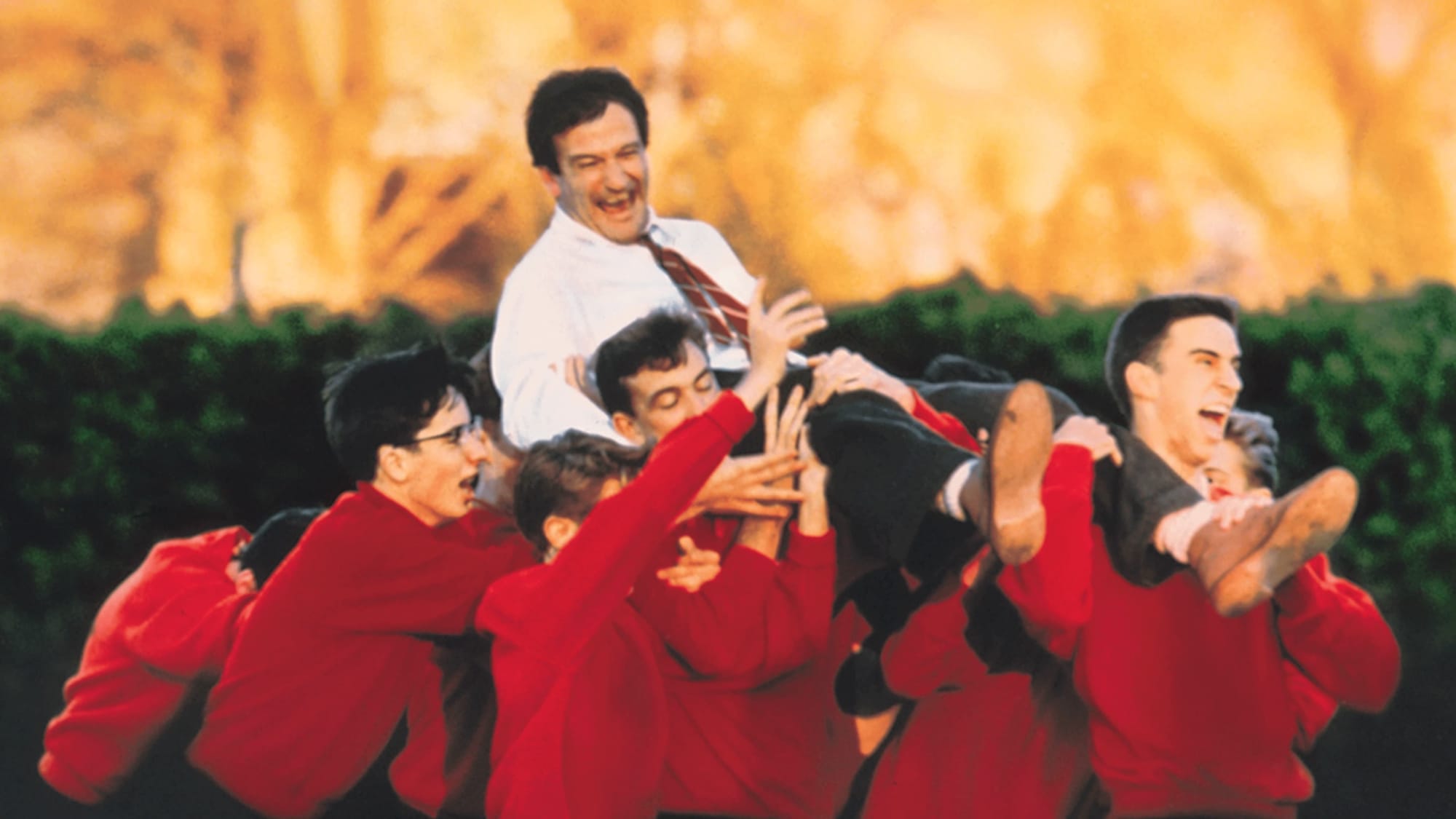
At the beginning of The Dead Poets Society, Robin Williams whispers “Carpe Diem” into the ears of his students at a narrow-minded elite school. And in the same voice I could hear it whisper “You've never seen Good Will Hunting on the big screen!”. And that's why we're here today and that's why I'm still here. So between you and I, we know how incredibly down battling depression can get you. You can hardly find the energy to take a shower, but you always find enough self-loathing lying around on the way to the bathroom, you don't want to talk to anyone and yet you're supposed to be on the phone to half the German Medical Association. I have already spent several hours of my life in the waiting areas of German psychotherapy practices, I never want to see pastel walls with photos of stones and brochures with trees and birds flying away again. I know that sometimes it all seems like life consists of an incredible amount of torment and microscopically tiny moments when everything is okay-ish.
Healing is hard. I can only share with you what has helped me:
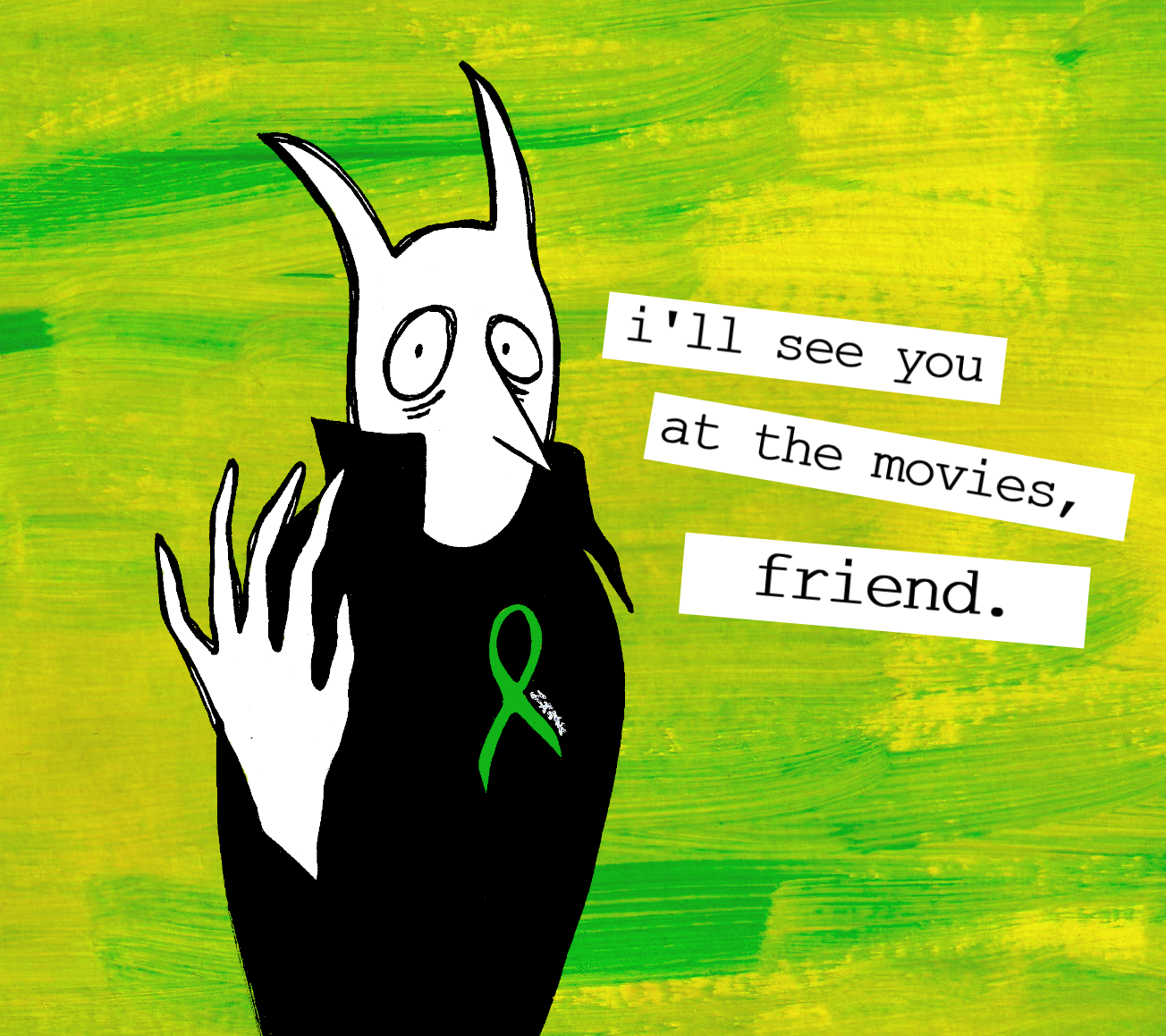
Shimmying my way from movie screening to movie screening. There's always a good movie playing somewhere, at least in these sacred halls, and I've gotten 27 years around that way. I can no longer meet Robin Williams, and that hurts my soul, but it would hurt even more if we missed each other. I hope that you and I will see each other at the next screening because we're still here, and the one after that, and the one after that. For me, that means “I'll see you at the movies, friend.”
But today I'm happy that you and I have made it this far. I have no choice but to finally leave you to Good Will Hunting and the incomparable, the inimitable, the magnificent Mr. Williams. It is the joy of my life to watch this movie with you.
Thank you so much!

